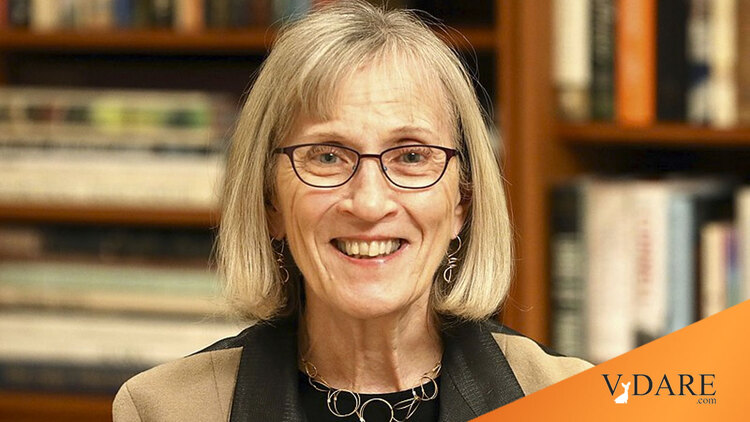
By Steve Sailer
10/09/2023
From a 2019 posting:
Symphonies, Blind Auditions, And The Women’s Lib Inflection Point
A popular study hyped by Malcolm Gladwell et al is that people are so implicitly biased against hiring women that when orchestras have potential hires audition “blind” behind a screen, women are hired 50% more often. This ties into popular narratives about how implicit bias is rampant in 21st Century America.But is it true?
This claim is taken from a 2000 study that eventually, after much methodological huffing and puffing, concluded:
Using the audition data, we find that the screen increases — by 50 percent — the probability that a woman will be advanced from certain preliminary rounds and increases by severalfold the likelihood that a woman will be selected in the final round.
From the American Economic Review in 2000:
Orchestrating Impartiality: The Impact of “Blind” Auditions on Female Musicians
By CLAUDIA GOLDIN AND CECILIA ROUSE*A change in the audition procedures of symphony orchestras — adoption of “blind” auditions with a “screen” to conceal the candidate’s identity from the jury — provides a test for sex-biased hiring. Using data from actual auditions, in an individual fixed-effects framework, we find that the screen increases the probability a woman will be advanced and hired. Although some of our estimates have large standard errors and there is one persistent effect in the opposite direction, the weight of the evidence suggests that the blind audition procedure fostered impartiality in hiring and increased the proportion women in symphony orchestras.
But as Jonatan Pallesen pointed out earlier this year, at JSMP.DK, the 2000 paper is kind of a mess and the 50% number that has entered the conventional wisdom is cherrypicked out of a lot of pro and con evidence.
Blind auditions and gender discrimination
A seminal paper from 2000 investigated the impact of blind auditions in orchestras, and found that they increased the proportion of women in symphony orchestras. I investigate the study, and find that there is no good evidence presented.
Jonatan Pallesen May 11, 2019
… Analysis
Table 4 is perhaps the most surprising.
So my guess is that blind auditions would have helped women get hired more in the 1950s and 1960s. But by the time blind auditions became really common, society had gone through its Feminist Inflection Point, so blind auditions were slightly worse for women due to the pro-women prejudice of the last quarter century of the 1900s (much less today’s hysteria).
A big part of The Narrative works like this: at some point in the Bad Old Days, there was much discrimination against women. Today there is less, but it’s a constant grinding battle to eke out a slightly more justice, decade after decade.
In reality, the Women’s Lib battle over working women was rather quickly and painlessly won in approximately 1970-1975, with Society en masse switching from con to pro. That’s why it’s difficult to identify any employers who enjoyed an enduring advantage from hiring lots of women the way the Brooklyn Dodgers and Cleveland Indians enjoyed a long advantage from hiring black baseball players in the later 1940s, while the St. Louis Cardinals and Boston Red Sox suffered from not playing blacks until the late 1950s. Instead, most everybody shifted their opinions on the propriety of working women quickly in the first half of the 1970s, even symphony orchestras.
This is a content archive of VDARE.com, which Letitia James forced off of the Internet using lawfare.